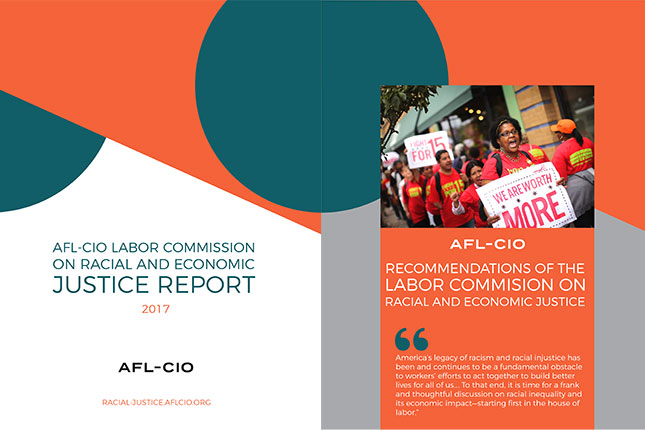Creating an Economy that Promotes the General Welfare of the Entire Nation
- contact: John Kretzschmar - William Brennan Institute for Labor Studies
- phone: 402-554-5901
- email: jkretzschmar@unomaha.edu

Omaha – The American labor movement is as American as apple pie. It too is dedicated to the proposition that we are all created equal and endowed with inalienable rights. It is dedicated to economic and social justice. Have their been elected and appointed leaders who failed to grasp that reality? Absolutely. Their failure led to an inability to create level playing fields. Their behavior led to more, not less, economic inequality. It led to more, not less, social injustice.
Dr. Martin Luther King, Jr., noted, “The United States is substantially challenged to demonstrate that it can abolish not only racism but the scourge of poverty of whites as well as Negroes and the horrors of war that transcend national borders and involve all mankind.” That is a tall task, and organized labor wants to play its part.
Back in 2008, then Secretary Treasurer of the American Federation of Labor-Congress of Industrial Organizations (AFL-CIO) put it this way: “There's no evil that's inflicted more pain and more suffering than racism--and it's something that we in the labor movement have a special responsibility to challenge. It's our special responsibility because we know, better than anyone else, how racism is used to divide working people. We've seen how companies set worker against worker--how they throw whites a few extra crumbs off the table--and how it's black and Latino workers who get the dirtiest, most dangerous jobs. But we've seen something else too. We've seen that when we cross that color line and stand together no one can keep us down.”
Talking about race is challenging, and sometimes is controversial. The entire subject makes many Americans uncomfortable.”
In February 2015, the AFL-CIO Executive Council called for the creation of a Labor Commission on Racial and Economic Justice. It arose out of what happened in Ferguson, Missouri. Over the next two months, the leaders of 12 international unions, the three executive officers of the AFL-CIO, the president of the Connecticut AFL-CIO and the president of the Chicago Federation of Labor volunteered to be part of this commission. An Advisory Council of 14 union educators, academics and independent experts was formed to develop the format and content of the hearings planned. Between July 2015 and March 2016, six labor commission hearings were held throughout the country.
The AFL-CIO Labor Commission on Racial and Economic Justice Report was released earlier this year. The report acknowledges, “Talking about race is challenging, and sometimes is controversial. The entire subject makes many Americans uncomfortable.” Nevertheless, discussion about race are taking place in local unions across the country, and the Commission’s findings will help inform those conversations. The report lists three recommendations to reach the goal of making unions more inclusive, responsive and welcoming.
- Build solidarity and understanding among union leaders and members on how race has been used to weaken labor unity, limit the growth of the labor movement and damage our efforts to advance economic reforms that benefit all working people.
- To build a more “diverse and inclusive labor movement,” we must integrate the issues and concerns of members and workers of color into labor’s political and policy work at every level.
- Work to ensure labor’s leadership and decision-making structures reflect the diversity of our members, and all working people.
In the spring of 2018, the William Brennan Institute will hold its 18th annual one-day Promoting the General Welfare Conference. The Institute is actively working to get a workshop leader from the AFL-CIO who can share the insights of this report.